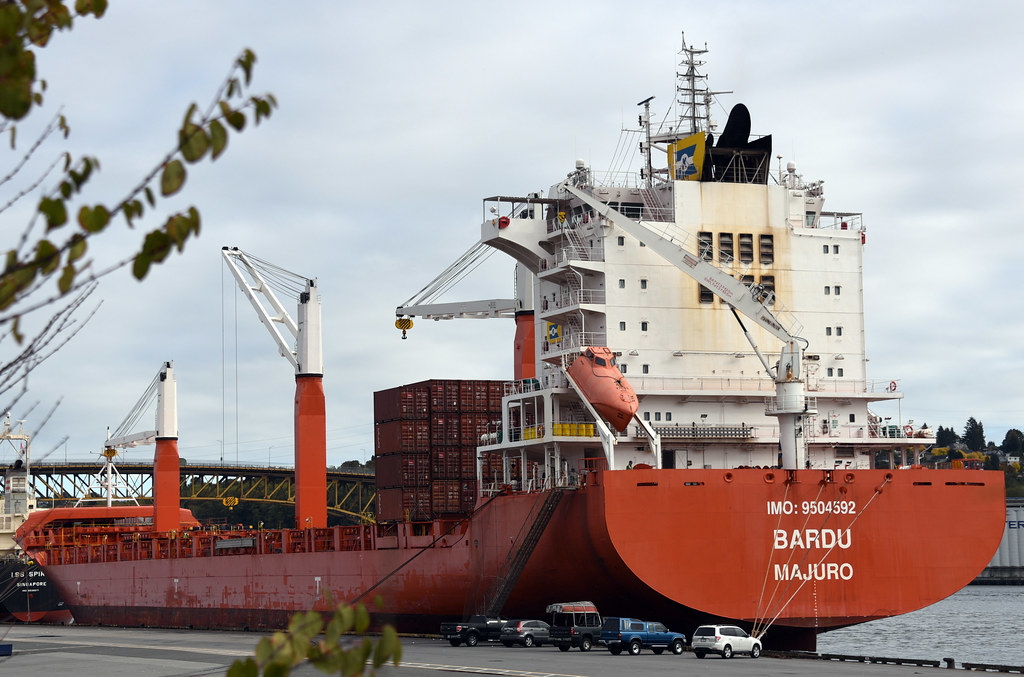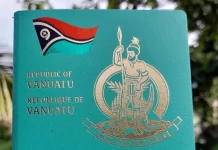A Marshall Islands ship registry official has pushed back at criticism a U.S organisation lobbed its way as part of the announcement that the United States government is going to launch an “open” ship registry.
The announcement late last month by the United States government that it plans to establish an “open” ship registry based in the U.S Virgin Islands put the Marshall Islands — which operates the world’s third largest registry — and other countries that operate open registries on notice that the U.S will soon be a competitor.
The supporters of the new U.S foray into the open registry world issued a report critical of the Marshall Islands and other large ship registries saying they don’t enforce regulations and have lax oversight of the large number of vessels in their registries. The report from the Northeast Maritime Institute’s Center for Ocean Policy and Economics specifically called out the three top ship registries — Panama, Liberia and the Marshall Islands — for “loosely enforced regulations and lack of due diligence and oversight (that) has created enormous risk to the U.S and global shipping industry and facilitated illicit activity on the high seas.”
The Trust Company of the Marshall Islands hit back at the criticism from this U.S organisation.
An official with the Trust Company of the Marshall Islands that manages the ship registry said the Marshall Islands has one of the best records in the ship registry business.
“While we cannot comment on mischaracterisations done by others for self-servicing purposes, the Marshall Islands registry has been and continues to be the world’s premiere quality registry,” said Deputy Commissioner of Maritime Affairs James Myazoe, who is based at the Trust Company of the Marshall Islands in Majuro. Myazoe said his statement is backed up by data provided by the major Port State Control or PSC regimes worldwide.
“PSC is the true scorecard for how a ship registry enforces both domestic and international regulations,” he said. “The Marshall Islands is ranked in the top 10 of both the Paris and Tokyo Memorandums of Understanding and has maintained Qualship 21 status with the United States Coast Guard for an unprecedented 18 consecutive years.”
Myazoe described the U.S Coast Guard’s Qualship 21 program as “one of the most difficult quality regimes for flag states to achieve.”
As part of the justification for the U.S government’s decision to start an open registry, the Northeast Maritime Institute’s Center for Ocean Policy and Economics said the United States “has traditionally supported the top three open international flag state regimes. However, they have since grown too large for true compliance oversight and lack the desire to provide genuine global law enforcement services. Many open international flag states have knowingly or unknowingly enabled much of the illicit and unsustainable practices seen on the high seas today.”
A Flag State Performance report released in late January by the International Chamber of Shipping suggests the Marshall Islands is one of the outstanding international registries. “The level of performance of many of the largest flag States — including Marshall Islands, Greece, Singapore and Hong Long (China) — continues to be very positive,” the report noted.
The International Chamber of Shipping website adds: “The table also indicates that distinctions between ‘traditional’ flags and open registers are no longer meaningful, with many open registers among the very top performers alongside several European registers, and flags such as Japan.”
The registry “performance table” ranks registries based on 19 different categories. The Marshall Islands registry is one of only 11 countries that show a “green” bar in all 19 categories, meaning it has a “positive performance indicator” in every category. It joins such developed countries that are positive in all 19 areas of registry operations: Norway, Singapore, Bahamas, Denmark, France, Germany, Greece, Hong Kong, Italy and Japan. The United States government’s current ship registry doesn’t have a positive ranking in all 19 categories.
SOURCE: MARIANAS VARIETY/PACNEWS















